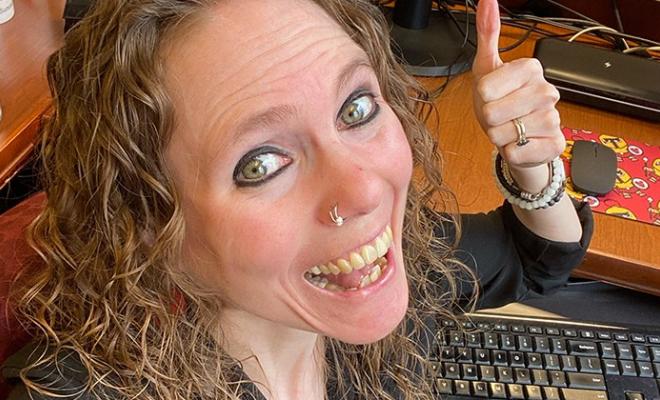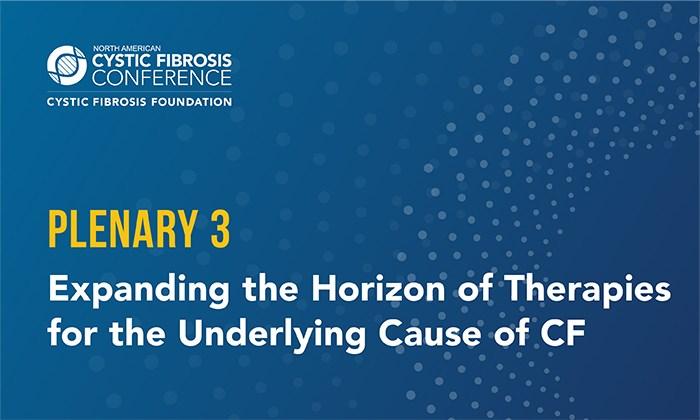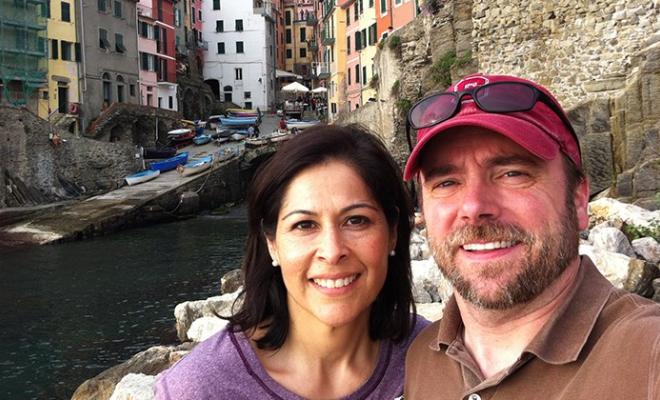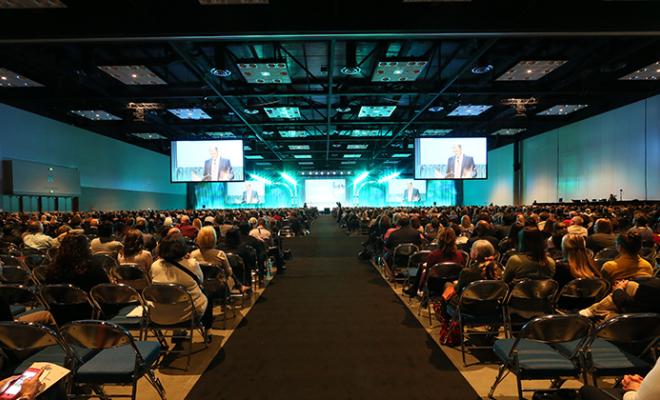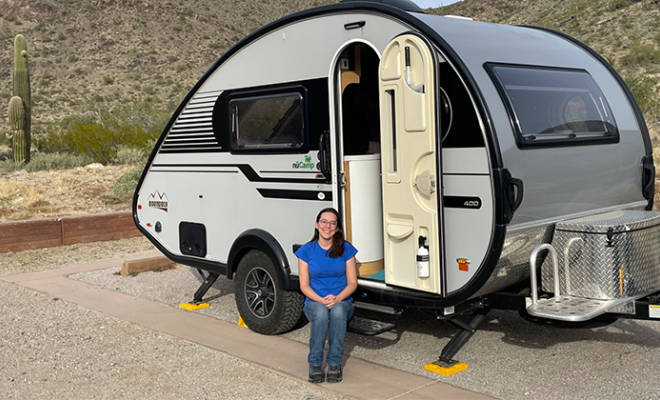My North American Cystic Fibrosis Conference (NACFC) experience for 2021 got a busy start months ahead of time as I juggled the work of contributing to not one but two sessions for the scientific program. But the spirit of this year's conference -- and the long-needed change it supports for our community -- really crystallized for me when I got a chance to watch Dr. Manu Jain's plenary session, “Expanding the Horizon of Therapies for the Underlying Cause of CF.” As a practicing medical scientist and clinical educator, I saw how being invited to offer guidance for conference attendees in interpreting the session content represented progress in centering patients in CF research and care. That sense of promise expanded abundantly when I actually watched Dr. Jain's session.
Watch the full plenary on Facebook Live
I am a patient scientist practicing both within and beyond the CF community. In the process, I constantly advocate for both myself and fellow people living with CF who are marginalized in multiple ways. Watching Dr. Jain's plenary was like watching our own life stories -- both the struggles and the triumphs -- bear abundant fruit.
As I listened to Dr. Jain thoughtfully and systematically review each major cluster of therapeutic innovation that has emerged for CF, I repeatedly pumped my fist. And I practically jumped for joy as I saw him bring patients in to tell their own stories in their own words.
For example, I loved getting to know Mariah. Mariah's own career path also illustrates the myriad ways patients give back to our community through professional practice -- whether in science or other areas. Her story illustrated the ecological nature of CF basic science, health care, and lived experience alike. It also showed how harnessing that complex ecology proves essential for justice in helping our community survive and thrive. If I had one critique of the plenary, it was that I did not get to hear dozens of stories from patients with different social and clinical relationships to CF. The intertwining narratives of Dr. Jain's summaries and each patient's experiences highlighted exciting opportunities for innovation and progress.
I also appreciated Dr. Jain's careful attention to both the outstanding strides for inclusion made possible by highly effective CFTR modulator therapies -- especially the approval of Trikafta® two years ago -- and the need for bold action benefiting those not eligible for modulators. As the only diagnosed CF patient in the U.S. who has my specific CFTR gene mutations, I know -- firsthand -- the feeling of being left out. I also know the feeling of being spared the experience of hope becoming horror, something Dr. Jain elegantly described in noting openly that some people have experienced significant side effects from their long-awaited miracle drugs.
Owning to the fact that modulators alone will never guarantee everyone with CF robust chances to survive and thrive also represents important growth from the day in 2019 where other “10%ers” and I read a news article about Trikafta headlined with “we conquered a disease.” Dr. Jain's apt attention to the racial and ethnic distribution of rare and nonsense CFTR mutations in the North American population illustrated why this idea of universal conquest was not merely problematic but also oppressive.
As a multiethnic white CF patient whose lineage is equally European and Indigenous American, I resonated strongly with this content and also hoped to see Native people represented explicitly in similar visuals for future NACFC events. And as the child of one biomedical scientist with very low vision and one biomedical scientist with a liver transplant, I deeply appreciated Dr. Jain's visual descriptions of images for accessibility, as well as his active inclusion of transplant patients in discussion of therapeutic advancements.
Dr. Jain's focus on the full ecology of treatment innovations that can benefit every person with CF across many different combinations of specific CFTR issues set a tone of inclusion and empowerment for our path forward as a community. Even if I did not have a robust biomedical science background myself, I knew that I could easily follow Dr. Jain's breakdown of different classes of issues with the CFTR protein that can produce clinical CF symptoms. I also saw clearly how a protein function approach to CF research and care nurtures justice for our full community by focusing on physiological processes rather than social or cultural preconceptions about who can have CF and what therapies will benefit them most. This plenary showcases theratyping as a powerful strategy not only for effective treatment, but also for health equity.
Finally, I appreciated how Dr. Jain never conflated addressing functional issues with the CFTR protein with “fixing” people who were never broken in the first place. Some scientific breakthroughs in CF treatment have been heralded using language that suggests erasure of our community as the ultimate goal. By contrast, Dr. Jain's plenary focused squarely and zealously on helping each individual person with CF live our best possible life. I encourage all NACFC attendees to embrace this philosophy in visioning your own contributions to that superordinate “cure found” goal.
Writing this reflection now feels amazing after years of collaborative advocacy for greater inclusion and accessibility at NACFC.
Seeing leading researchers and clinicians actively center diverse patient voices from both within and beyond the science community demonstrates true evolution in our collective support of everyone impacted by CF.
It also opens new opportunities for justice in research and care. We must seize these opportunities with vigor by making sure nothing “about us” ever again happens “without us” at NACFC or in other CF science spaces. Seeing this rallying cry from patient advocates begin to resonate with researchers and clinicians lights a torch of hope for our entire community.
“Until It's Done” means building a comprehensive culture of proactive inclusion and affirmation for every single person living with CF and the many people who support us. Dr. Jain's plenary gives us an uplifting look at that future. Let's keep working together to make sure it shines brightly!
Interested in sharing your story? The CF Community Blog wants to hear from you.

